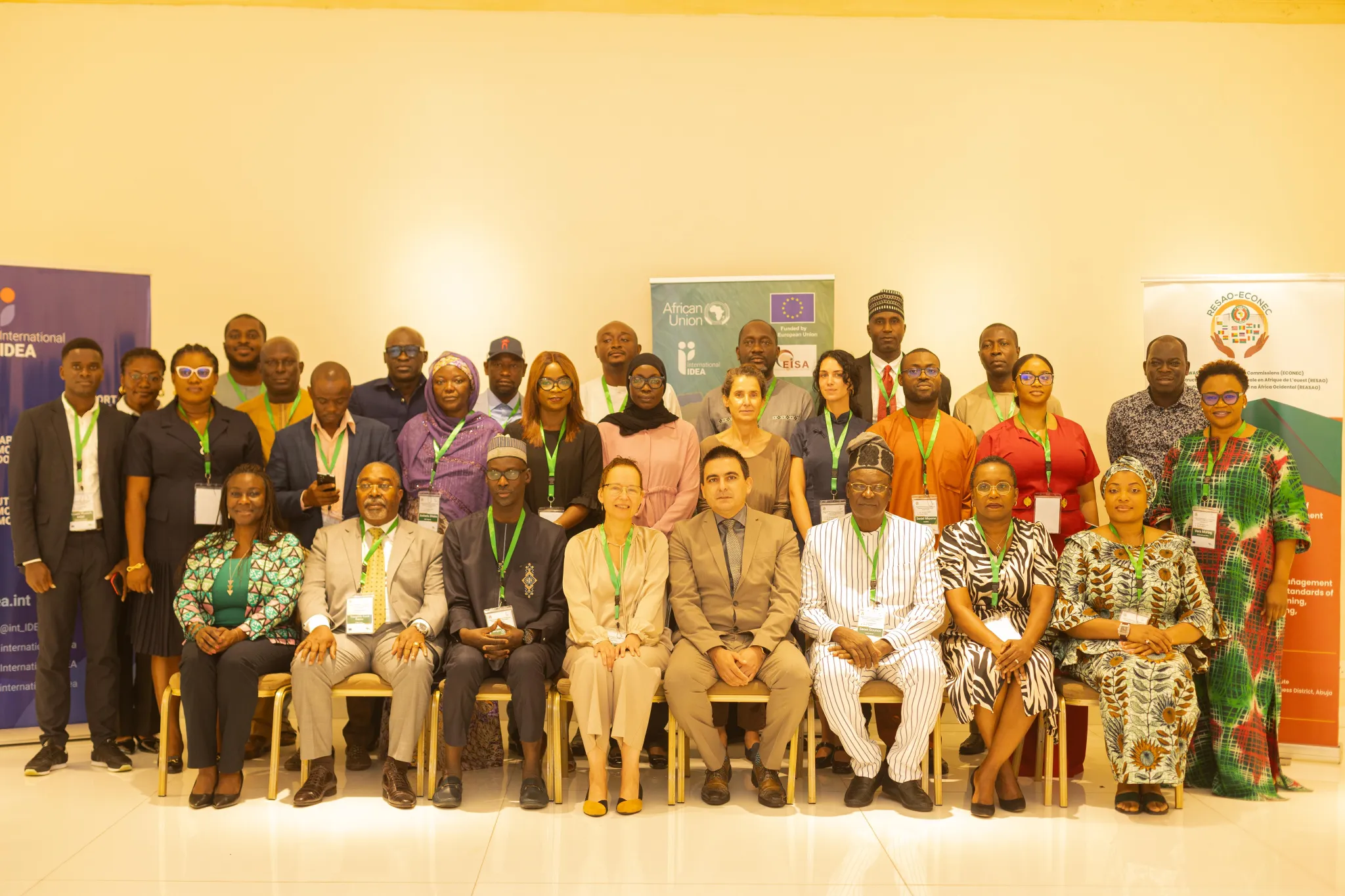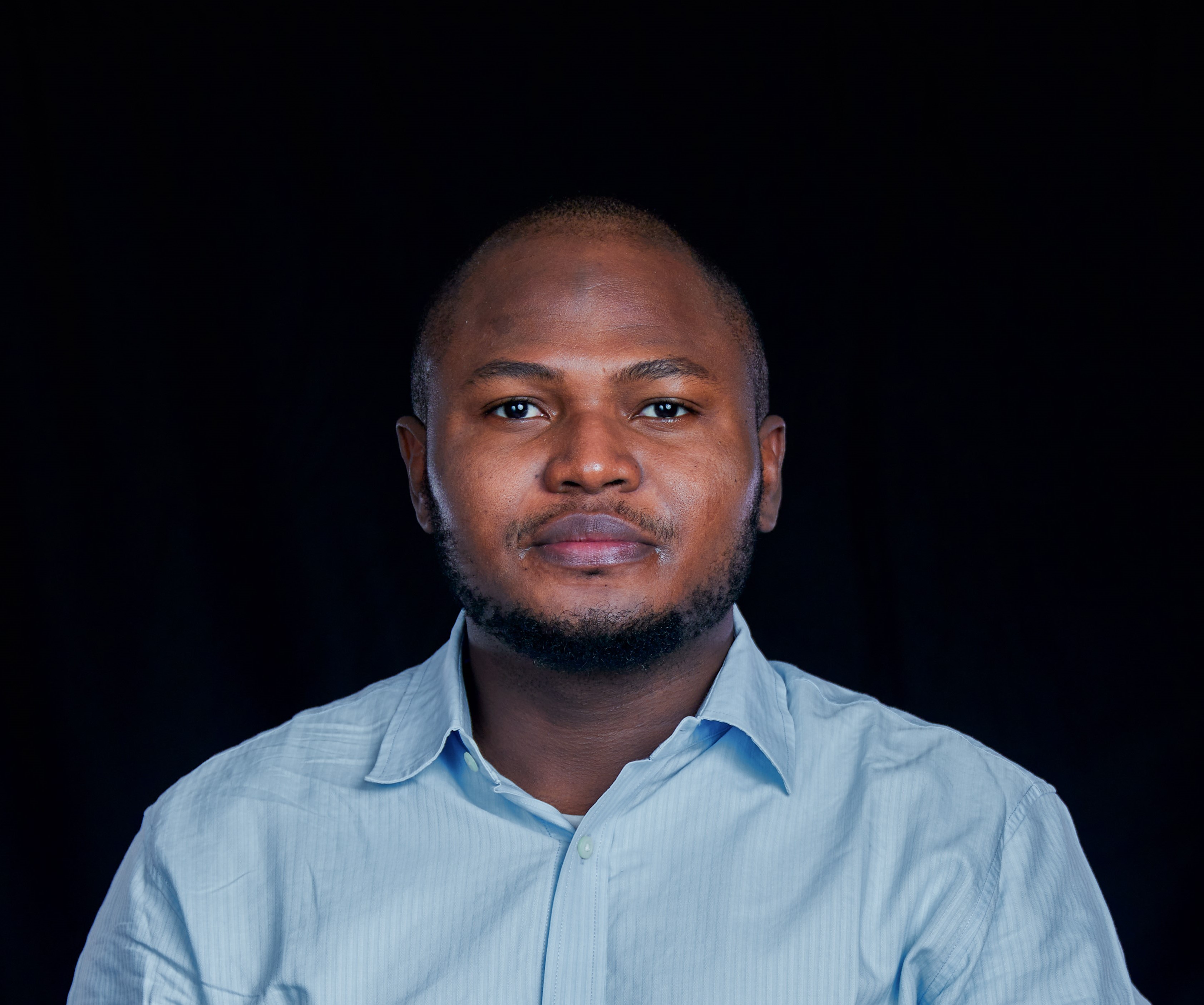As democracy goes digital: Africa at the vanguard of fighting disinformation in African elections

From 27–28 August 2025, representatives of Electoral Management Bodies (EMBs), Regional Economic Communities, and election networks gathered in Abuja, Nigeria, for the Regional Workshop on Protecting Elections in the Information Environment. The event, hosted in partnership with the ECOWAS Network of Electoral Commissions (ECONEC), is part of a wider push to protect electoral integrity in Africa against the rising tide of misinformation and disinformation.
Supported by the European Union through the Strengthening Pan-African Capacities for Electoral Observation and Assistance (SPEC) project, the workshop created space for candid conversations on how information manipulation threatens elections—and what can be done to stop it.
In Africa today, elections are no longer fought only at polling stations. Increasingly, the outcome is shaped by narratives that spread in the digital space. Misinformation and disinformation, powered by the speed and reach of social media, have turned elections into targets of manipulation. The danger is clear: when falsehoods outpace facts, trust in democracy erodes.
Why the Information Environment Matters
Over the last decade, African elections have been shaped not just by what happens at polling stations but also by what happens online. The speed and reach of false information on social media have made elections more vulnerable to disruption and manipulation.
This is not a challenge unique to Africa. Across the globe, the rise of disinformation has destabilised democratic institutions and widened the gap between citizens and governments. Artificial intelligence tools now make it easier to produce and spread false content at scale, leaving citizens confused about what is real and what is fabricated.
The European Union Mission in Nigeria and ECOWAS, represented by Mr Reuben Alba Aguilera (Head of the Governance, Security, and Migration Section), further emphasised the need to review electoral processes and ensure credibility across all aspects. He referenced the Afrobarometer report, which shows that youth participation is growing in politics despite challenges. Hence, there is a need for us to be deliberate about ensuring safe spaces.
There is a significant and impactful role disinformation plays in elections. This is the same for Africa and Europe, and this impact has significantly increased in recent years. The role of Artificial Intelligence makes it more and more difficult to decipher facts from falsehood. Anything that compromises the integrity of information reduces people's capacity to take informed decisions in matters that affect them. And with elections, the implications are far-reaching.
In short, disinformation does not just distort political debate—it strips citizens of their agency. A voter who cannot tell truth from manipulation is a voter who cannot meaningfully hold leaders accountable.
In addition, the head of the Electoral Assistance Division, ECOWAS Commission and Permanent Secretary of ECONEC, Mr. Sergine Mamadou Ka, said:
Elections are no longer won or lost only at the ballot box; they are increasingly shaped by the narratives that circulate in the information space. At ECONEC, we believe that Electoral Management Bodies cannot address these challenges in isolation. This workshop provides a vital platform for regional cooperation and collective learning, ensuring that the integrity of elections in West Africa is protected against disinformation and other emerging threats.
The need for systematic approaches
Ad hoc responses are not enough. Too often, EMBs are left reacting to crises—countering viral falsehoods only after they have spread widely. This reactive posture leaves democracies vulnerable.
Therese Pearce Laanela, Head of Electoral Processes at International IDEA, underscored the need for a more structured response:
To effectively counter misinformation and disinformation during elections, we must walk through the issues systematically and develop a concerted approach. The goal is to put in place the building blocks of protective infrastructures that Electoral Management Bodies and countries can rely on. These frameworks will not only safeguard election processes but also reinforce trust in democratic institutions.
Protective infrastructures mean more than fact-checking. They include robust monitoring systems, clear legal frameworks, stronger collaboration with social media platforms, and investments in digital literacy, enabling citizens to better discern truth from manipulation. Most importantly, they require a shared understanding across governments, EMBs, civil society, and international partners that protecting the information space is as vital as protecting ballot boxes.
At its core, the fight against disinformation is about safeguarding trust. Elections cannot be credible if voters believe the information around them is manipulated. Democracy cannot thrive if citizens feel deceived.
That is why the stakes are so high. If falsehoods dominate Africa’s electoral landscapes, they risk undoing decades of democratic progress. If democracies instead succeed in building resilience, they will not only protect their elections but also strengthen the very foundations of governance and accountability.
Looking Ahead
The Abuja workshop is not a stand-alone event. It forms part of International IDEA’s global project on Protecting Electoral Processes in the Information Environment. Lessons from this regional workshop will inform future initiatives across Africa and beyond, helping EMBs stay ahead of the ever-changing risks posed by disinformation.
As participants concluded, this is just the beginning of a longer journey: building resilience against misinformation, reinforcing trust in democratic processes, and safeguarding the future of African elections.
As Olufunto Akinduro, Senior Adviser on Elections in Africa and West Asia at International IDEA, reminded participants of the workshop:
If we are thinking of the future of democracy, we know now that democracy is now shaped by the digital world. So, we are bringing these election management bodies together to discuss how to ensure elections are credible in the current climate. Because disinformation doesn’t just attack election processes—it erodes public trust in democracy itself. Our collective responsibility is to strengthen cooperation and resilience against these threats.
Resource: For further information please read/download the English event report,
French event report




